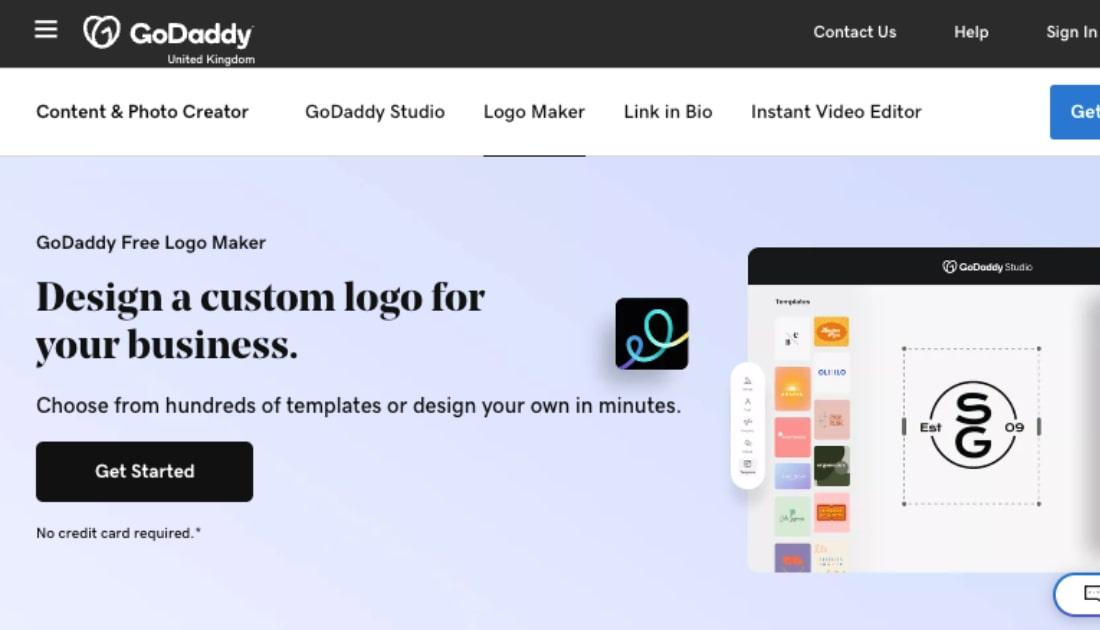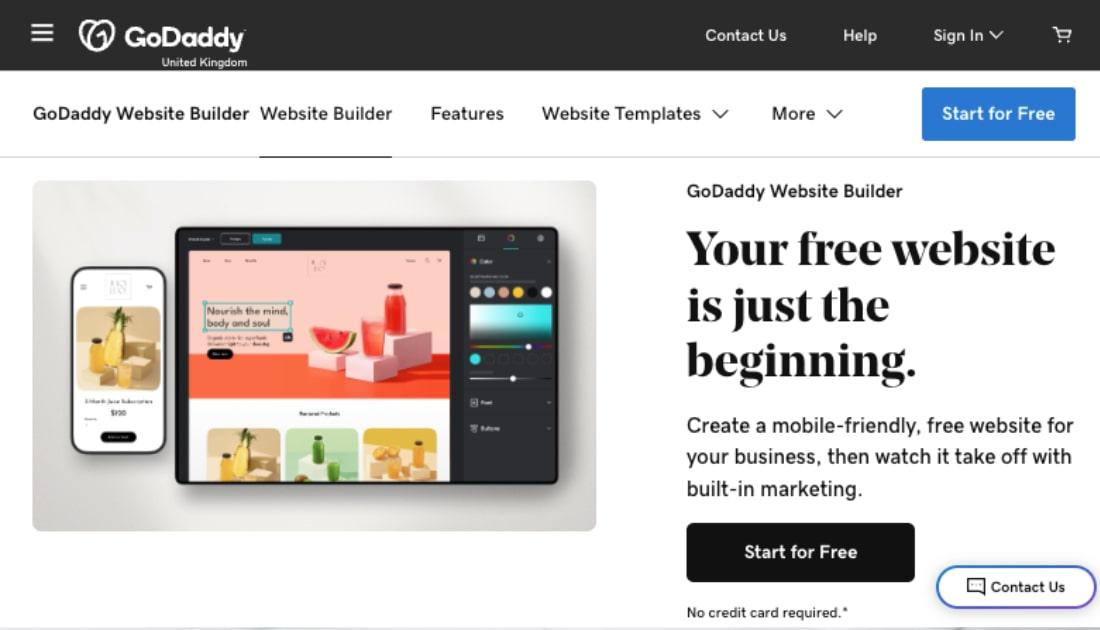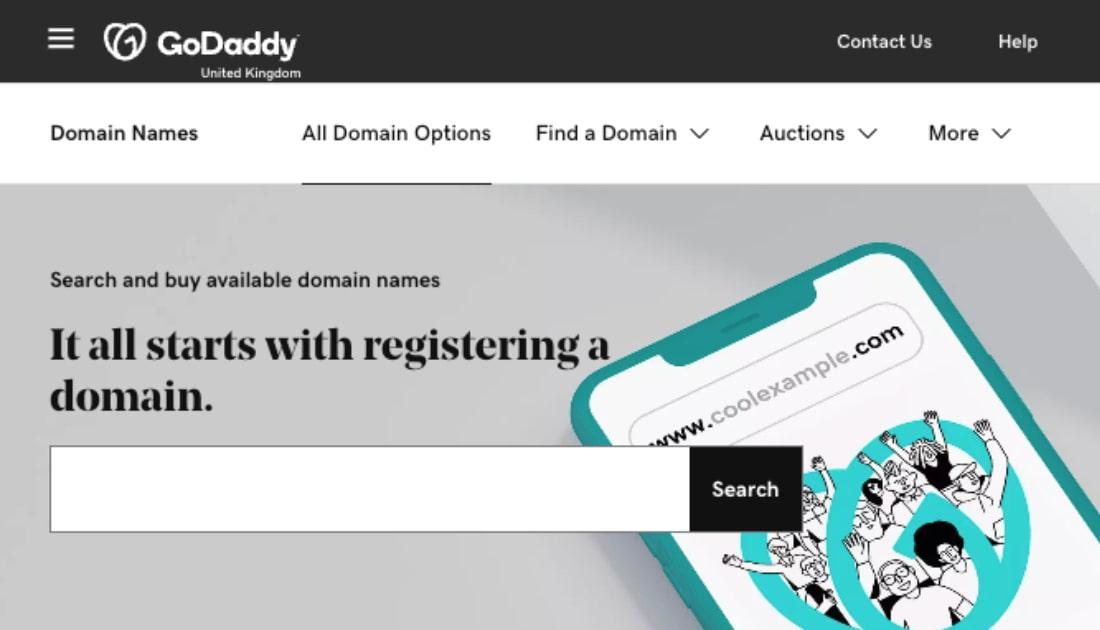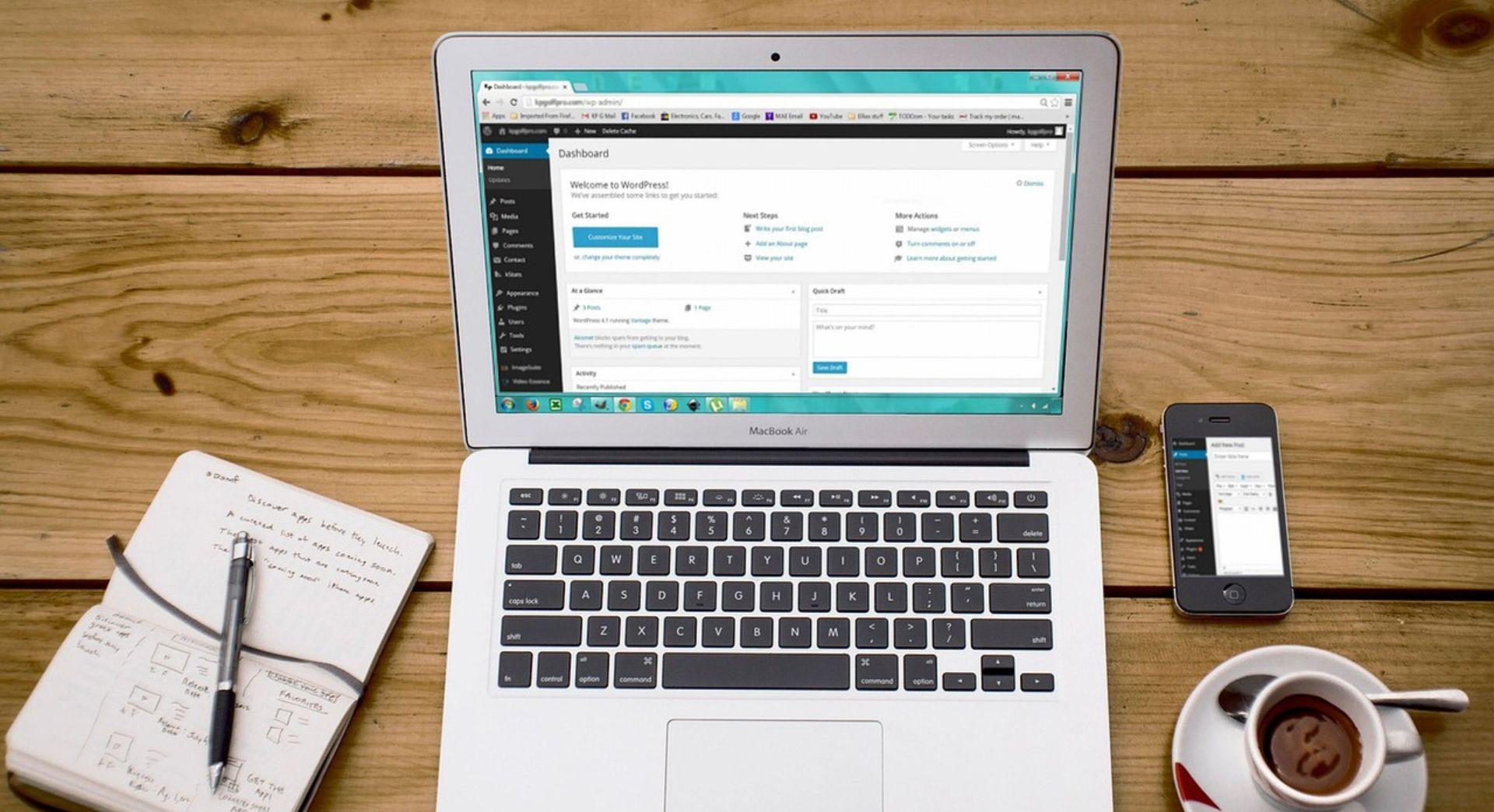There has never been a better time to start a business. In our hyper-connected digital age, you can set up a website, online store and entire brand from anywhere in the world.
Online business-building tools have never been more accessible.
And with the right approach, you can grow a loyal customer base quicker than you might think.
If you’re wondering how to start a business this year, we’re here to help. In this guide, we’ll look at the essential steps you need to take to make your business real.
Ready? Great. Let’s get started.
Note: The information in this article is provided for general informational purposes only and should not be construed as professional advice on any subject matter. You should consult with a legal and/or financial advisor before making business decisions.
1. Find a business idea

First of all, to enjoy sustainable commercial success, you have to find a business idea that is not only feasible but something you feel passionate about.
If you have a short list of business ideas in mind, dig a little deeper by carrying out a little market research. Look at brands in your potential niche and find out how their consumers engage with them while looking at overall demand based on public sales or growth data.
This will give you inspiration for your own business ideas.
Armed with your market and competitor research, you can develop your ideas by considering:
- What am I passionate about?
- What are my specific skills and expertise?
- Can I feasibly sell or promote the product or services in my potential niche?
- What unique spin can I put on well-trodden business ideas or concepts to stand out?
- What gaps or weaknesses can I exploit in my potential niche or market?
Ask yourself these questions and you’ll eventually land on a business idea that has the potential to grow while keeping you engaged and inspired in the long term.
Related: 37 of the best side business ideas
2. Use market research to validate your idea

Once you’ve landed on a business idea, you’ll need to see if it has any legs. We just touched on the concept of market research, but now we’re going to drill down a little deeper.
When brainstorming business ideas, you will have scratched the surface. But, to really validate your concept, you must get under the skin of your industry as well as your target audience.
In addition to gathering industry data, you should build buyer personas.
Here are some market research and analysis ideas for your consideration:
- Conduct consumer surveys across channels (phone, email, social media, mobile app, etc.).
- Hold focus groups to gain a deeper understanding of how your likely buyers might perceive your brand and what you have to offer.
- Observe how your target audience engages with your competitors on social media as well as the topics they’re discussing online.
- Explore public data related to your target market to uncover consumer buying patterns as well as sales trends.
This will help you validate your idea while giving your business planning a definitive direction — which brings us onto our next point.
Related: How to get started with travel blogging
3. Create a business plan

Now your idea is validated and you’ve got a handle on your most likely buyers, you’ll need to start planning.
If this is your first attempt at learning how to start a business, methodical planning is key. Here are some tips to help you navigate the process like a boss:
- Consider your “why.” This will help you gain an understanding of your key motivations for starting your business as well as what you hope to achieve
- Outline plans of action or initiatives that represent your brand mission
- Define your key business goals using timelines and milestones to keep you on track
- Write an executive summary that states all essential information related to your business’s aims, goals and products
To break down each step in more detail, read our essential post on 5 things to include in a business plan. You can also download a nifty free business plan template from the Prince’s Trust website.
4. Explore funding options
To get your business off to a flying start, you’re going to need funding. The options you explore will depend on the type of business you’re looking to start.
Many choose to start the business on the side of a full-time job.
72% of small business owners surveyed by GoDaddy in 2023 payed ₤1,000 or less in set-up costs.

If you’re looking to start a solely online business, you could do this or use your personal savings to get up and running. To get an idea of the cost of starting a business, have a look at this guide. We covered different scenarios, including fixed costs, variables and some ideas on budgeting as well.
Other business funding options include:
- Crowdfunding: Using dedicated crowdfunding platforms, you can inspire people to donate to your business venture in return for incentives or equity. This can be a very effective form of fundraising—and there have been many crowdfunding success stories in the UK over the years.
- Gain a line of credit: Akin to obtaining a personal line of credit, you can gain a line of business credit. The terms, limits and interest rates will depend on the nature of your business as well as your financial history and credit rating.
- Get a grant: Another way of securing funding for your business is getting a grant. If your business mission is rooted in building a better community or inspiring innovation, you could be eligible for a grant from the Government. Unlike loans, grants do not have to be repaid.
- Pitch to investors: Researching investors in your niche and pitching to them is an excellent way to get funding as well as professional backing and expertise. This is certainly an avenue worth exploring if you’re looking for startup capital and willing to trade this for a portion of your future profits.
Interested in learning how to start a business with little or no funding? Read our to-the-point guide on how you can start a business in the UK with no money.
5. Choose a legal business structure
A key step in starting a business is choosing a legal structure. Before you officially register your business, you have to decide on a concrete business structure—and the type you choose will impact your business from a legal standpoint. So, take your time when considering these structures.
Sole proprietorship
If you own your business independently, you can opt for sole proprietorship. This will give you complete control on your decisions.

But it’s worth noting that if your business struggles or fails to achieve profit, you will be solely responsible for paying back any debt.
Pros:
- You will be in full charge of business decisions, development and planning
- You will receive all of the business’s profits
- You will find filing for tax simpler
Cons:
- Managing everything on your own could burn you out and limit your potential for growth
- If you hit financial hot water, you will be liable for settling any debts or arrears
Partnership

Combining forces with another budding business owner will give you double the startup as well as another person who is liable for the red tape as well as the financial aspects of the business. More often than not, two heads are better than one—forge the right partnership and you could see your business thrive from the get-go.
Pros:
- You will have twice the skills, perspective, and financial scope
- You will have another person who is responsible for the running as well as financial and legal aspects of the business
Cons:
- If you and your partner disagree on any aspect, this could cause the kind of friction that could derail progress and stunt growth
Corporation
Setting up a business as a corporation separates your personal assets from your business assets.
If your company incurs debt or is subject to legal disputes, in most cases your personal assets will be protected.
There are many different forms of a corporation to consider, some of which offer access to some pretty decent investment opportunities.
Pros:
- You will gain access to more funding options
- You will benefit from certain tax breaks
- You will be able to protect your personal assets from business risks
Cons:
- Corporates can be costly to form and run
- There can be a lot of red tape involved in the running of a corporation
Limited liability company (LLC)

As a limited liability company (LLC), your business will have the legal protection of a corporation while also reaping the tax rewards of a business partnership.
Pros:
- The setup process is relativity straightforward. You can learn how to start an ltd company in our guide.
- You will gain access to a range of capital and funding options
- Your personal finances will be protected from risk
Cons:
- Your investment options can be limited with an LLC
- You can be subject to fairly costly annual maintenance fees
Weigh up the pros and cons of each business structure, taking your aims and appetite for risk into consideration. To learn more about these business structures and about the process of registering a business, check out this guide.
Now you need a business name to bring your brand to life.
Use GoDaddy's free business name generator to get the ideas flowing.
Once you’ve decided on your business name, choose the best domain name for you. If the dot-com you want isn’t available, opt for a .co.uk or .uk domain name. These web address endings are memorable and well-known and also considered more credible and trustworthy by British consumers.
Need help choosing a domain name? Read 10 tips for choosing the perfect domain name.
Editor's note: Save on startup costs by creating a great-looking logo yourself with the free logo maker from GoDaddy Studio.
6. Register your business and get the required licenses

The next step in your how-to-start-a-business odyssey is registering your business and getting any required licenses.
By choosing your business name and settling on your business structure, you will have already started the registration process. To complete the registration process and obtain the right licenses, you will need to:
- Check the full registration requirements depending on your legal structure
- Work though the registration requirements for the UK and the region where you’re looking to trade or operate
- Register for VAT and any other applicable taxes
- Obtain a Unique Taxpayer Reference (UTR) if hiring staff
- File any relevant trademarks
- Find out which if any business licenses you need and start the application process
Related: Why a Google My Business listing is so important for your business
7. Open a business bank account
With your business almost up and running, you may want to open a bank account. This will keep your business and personal assets separate and make tax time easier.
You should choose a bank account with benefits and features that suit your business’s size as well as your goals.
Tip: Create a short list of business bank accounts with flexible loan options as well as excellent customer service and online banking applications.
To set up your business bank account, you will need:
- Official business incorporation documents
- Your Unique Taxpayer Reference (UTR) or VAT registration number
- Your official business name and address
- The date your business was established
- Your National Insurance number, personal address and date of birth
8. Get business insurance

Depending on the type of business, you may also need to get business insurance. If you don’t, you could find yourself footing a colossal bill if any unexpected issues, damages or disputes arise.
Even as a small business, you may need to cover yourself with the right kind of insurance to protect yourself against any eventuality.
If you’re offering a service rather than tangible goods, it pays to get professional liability cover in case of any consumer-facing mistakes you might make.
You might also consider employment practices liability insurance as your business grows. This type of coverage will protect you against any potential employee claim or complaint.
9. Build your website
Many start up business owners choose to begin their online presence with a social media business page on the likes of Facebook or Instagram.
Doing this is fairly easy, especially if you utilise a tool like GoDaddy’s Logo Maker to design a professional-looking logo in minutes and for free.
But did you know that it’s just as easy to build an actual website? Plus, it’s more affordable than you might think.
With GoDaddy Airo™ you can harness the power of AI to build a website in minutes.
You simply give Airo™ your proposed business name or tell it about your general idea in a few sentences and it will generate some domain name suggestions for you.
Select the domain name you like and Airo™ will design a website for you, complete with free images and ready to use text (no Lorem ipsum placeholder copy here!).
You can replace images, play around with layout, and edit the copy if you like, but essentially it should be good to set live.
With the Airo™ experience, you’ll also get access to the Logo Maker mentioned above and a free trial of a professional email address that’ll make you look like you really mean business to new clients.
With your website set up, it’s easy to take it to the next level, using Website Builder to add functionality or Online Store to start selling products.
Want to do more research before you get your domain, website, logo maker and pro email address?
Here are some further hand-picked resources to help you out:
- Our guide to creating a website for your business
- 10 things you should know about starting a business website
- Low-cost SEO: A small business owners guide
Related: How much does it cost to build website in the UK?
10. Launch and grow your business
“There’s no shortage of remarkable ideas. What’s missing is the will to execute them.”—Seth Godin
If you’ve followed all of the steps in this how-to-start-a-business guide, you’ll now be ready to launch.
Once you build a buzz about your big business launch across various channels including email and social media, you can start selling and take measures to grow year on year through marketing campaigns and sales initiatives.
For many, starting a business is a challenging but rewarding venture. Be persistent, play to your strengths, take the time to ensure you’ve covered every base, and you’ll be winning on the commercial battlefield in no time. Best of luck.
Frequently Asked Questions
Still have questions? The answers may be here.
How can I start my own business with no money?
The best way to start your own business with no (or very little) money is to keep your day job while you’re getting established.
This is also the least risky way to start your own business.
Ideally, you need to start a business that has no (or minimal) upfront costs. It should also start generating revenue quickly for it to be sustainable.
If you keep your day job, you can reinvest your early profits back into the business to help you to grow. Hopefully, you'll reach a point where you’ll can quit (or scale back) your day job.
How can a beginner start a business?
A beginner can absolutely start a business. As long as you have a clear idea of your goals and a passion for what you do, you can make your business a real success. Follow the steps on how to start a business detailed above and you’ll be up and running sooner than you might think.
How much money do you need to start a business from scratch?
The cost of starting a business will vary depending on your industry or business model of choice. In a 2023 survey conducted by GoDaddy, 72% of UK small business owners payed ₤1,000 or less in set-up costs.
Many new companies fail, so it’s best to overestimate what’s needed as part of your business plan.
Can I run a business by myself?
There is no reason that you can’t run a small business by yourself. With the right resources and the right approach, you can set up, launch, and operate your business.
Going solo is more than possible, but with so much to consider it’s a huge undertaking. As your business grows, hiring contractors or getting a partner on board will be a good idea. That way, you can further accelerate your commercial growth.
How do you create a legal organisation?
To turn your business idea into a legal entity, here's a quick rundown of what you'll need to do:
- First, come up with a unique name for your business.
- Next, figure out what kind of business structure makes the most sense, such as a sole proprietorship, partnership, LLC or corporation.
- Pick a good location for your business and make sure you've got all the necessary permits and licenses.
- Get all your paperwork in order and register with the government.
- Set up your financials, like opening a company bank account and staying on top of your taxes.
Just remember, forming a business can be a bit complex, so it's a good idea to chat with a tax advisor or lawyer to make sure you're doing everything right.
What is the easiest business to start?
A service-based business is often considered the easiest to start as you don’t have to deal in physical stock or inventory.
But, it’s never been more accessible to set up and launch a successful online business. In the digital age, tools exist to help you set up an ecommerce store or build a website without technical expertise.
With a little research, almost any kind of business will be within your reach.
What is the simplest legal form to start a business?
A sole proprietorship is the easiest and least expensive legal business structure to set up. You will have complete control over the entire business, but be aware: you will be responsible for any debts as well as legal issues of the business.










